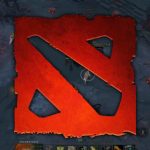Novak Djokovic just put up one of the most impressive games of his life, beating Lucas Pouille in 6-0, 6-2, 6-2. Meanwhile, Rafael Nadal did quick work of his opponent, Stefanos Tsitsipas, in straights 6-2, 6-4, and finally 6-0.
But the thing is, only one of them can win and with the two having a near 50% win rate against each other, it’s definitely not going to be a one-sided victory. That being said, we are going to take a look into the different aspects of their game and their current state of the game to see who will win.
Novak Djokovic: (-130)
Rafael Nadal: (+110)
Rafael Nadal’s Road to the Final
Rafael Nadal’s road to the final has been a solid one. He’s put up extremely high stats while also not losing a single set along his way. In his first round, he played James Duckworth and beat him in three straights to advance to take down Matthew Ebden, another Australian tennis player.
But Nadal showed none of this struggle, instead taking down the Czech player in straights 6-0, 6-1, 7-6 (4). He would then go on to breeze through another Next Gen talent, Francis Tiafoe, in straight sets. His hardest opponent would be Stefanos Tsitsipas, a Greek machine who had taken down both Roger Federer and Roberto Bautista Agut in the previous two rounds.
This was expected to be a tough match for both Nadal and Tsitsipas on different scales since Stefanos would have to upset yet another top seed while Nadal would have to adapt his playstyle to fit against a Next Gen champion.
But Rafael Nadal played some of his best tennis that day, winning in yet another three sets, 6-2, 6-4, 6-0. In this match, Rafael Nadal put up some of his best stats by far. He made only fourteen unforced errors throughout the entire match, meaning an average of about one unforced error every two games.
He would also hit several winners throughout the match, basically controlling every aspect of the game with Stefanos Tsitsipas unable to do anything to counteract the Spaniard’s dominant baseline regime of shots.
With quick work, Rafael Nadal secured his spot into the top two, creating one of the most dominant Australian Open runs in his career history.
Novak Djokovic’s Road to the Final
Novak Djokovic’s road to the final has been a bit shakier than Nadal’s. His first round was relatively easy as he faced Mitchell Krueger and beat him in straights. His second round saw him facing former AO finalist, Jo-Wilfred Tsonga, who beat in straights but two of them were extremely close.
The match went four sets with both sides sharing their own frustration at points. However, in the end, Djokovic prevailed 6-3, 6-4, 4-6, 6-0. With a close match out of the way, Djokovic would have to face another tough opponent—fifteen seed, Daniil Medvedev.
The two would go their way and it would go to four sets yet again. Djokovic would ultimately prevail 6-4, 6-7 (5), 6-2, 6-3 despite Medvedev’s phenomenal offensive game that he threw at the Serbian. Now, Djokovic would be facing Japanese superstar, Kei Nishikori.
Despite being projected as yet another hard match for the Serb, Novak Djokovic received an unorthodox win over Kei as he was forced to pull out of the match after being down 1-6, 1-4 due to an injury pertaining to his right hip.
With an opportunity to recuperate, he would go on to face yet another French opponent: Lucas Pouille. Lucas Pouille had the best run of his career, reaching the Australian Open semifinals for the first time after taking down sixteen seed, Milos Raonic.
However, Novak Djokovic dismissed the Frenchmen in one hour and twenty-three minutes with a straight-set victory. That meant it took, on average, thirty minutes to win each set. This victory over Pouille would secure his seventh Australian Open final debut to face off against one of his biggest rivals in the game of tennis.
Analyzing the Players
The great thing about Novak Djokovic and Rafael Nadal is that their playstyles are almost the same when it comes to the average human eye. So close in fact that you have to look at the details to get a good idea of who you might want to support.
Head to Head Matches
As I’ve mentioned before, the win rate of both players against each other is close to fifty percent. Currently, Novak Djokovic is at 52% with twenty-seven wins and Rafael Nadal is at 48% with twenty-five wins.
That being said, it’s easy to see that Novak Djokovic is the clear winner when it comes to the stats on the hard court. He dominates on the hard court and that’s what he likes to play. It’s where he excels and it’s why he was able to beat Nadal in the finals of the 2012 Australian Open.
Of course, with the two playing at such a high caliber and the margins for winning and losing being so low, you can never really expect anything to happen because at the level of competition they’re playing, even the craziest can happen.
Playstyles
Nadal and Djokovic play almost virtually the same—heavy defense from the baseline while battering their opponents down. However, they do it differently. Nadal likes to attack with his heavy topspin forehand while Djokovic uses his backhand to carve out angled shots that catch his opponents off-guard.
That doesn’t mean Djokovic’s game isn’t effective, though. In his semifinal match versus Pouille, Novak made only five unforced errors throughout the entire match and his ability to keep the ball deep no matter where he is on the court is a testament to just how good he is when it comes to playing from the baseline.
Thus, Novak’s game is very solid and hard to break. Meanwhile, Nadal has been using his huge forehand to his advantage, ripping deep topspin forehands that break down any fundamentals a player can have. After his semifinal match, Tsitsipas said that “he makes you play bad.”
While Nadal is huge on his offense right now, Rafael Nadal has just as good defense. His court coverage is on par, if not better than Djokovic’s. He’s known for his banana-shot, a spinning ripper of a forehand that can go around the net, extremely useful when put in uncomfortable situations.
His defense is just as good as his offense and this makes him a player that can be taken down with a one-dimensional playstyle. Opponents have to figure out to beat him two ways, both offensively and defensively.
In conclusion, while they’re both extremely good baseliners, Novak Djokovic has been leaning to a more defensive playstyle while Nadal has been pushing more towards offense.
Previous Injuries
Both of these players have just crossed the thirty age mark, meaning that it’ll only be a few more years before they’ll be leaving the professional scene. It’s during this time that injuries are quite common and can show up in a player.
On Djokovic’s side, his elbow troubled him largely through 2017 to 2018. It was a major factor into him losing early in both the 2017 and 2018 Australian Open and because of this, he was forced to change to a more unorthodox serve to hope to prevent injury.
But due to unsuccessful tournaments and troubling play, Novak Djokovic quickly switched back to his old playstyle. With long matches and tough opponents, Novak’s elbow might be inflamed yet again and this could prove troubling for Djokovic.
For the Serbian, the serve is the biggest piece to his game. It’s what makes or breaks him. It’s what either allows him to hold his serve or gives his opponents opportunities to take the set. If the elbow becomes a problem for Novak, then Rafa won’t hold back.
What to Look For
For this year’s final, you’ll want to look for a variety of things on both ends, for both Novak Djokovic and Rafael Nadal. Both of these players have indicators that will tell you if one might have the winning edge or might be slipping.
Novak Djokovic
Look for Novak’s serve. I can not stress this enough. As I’ve reiterated before, Novak’s serve is what helps him win. If he’s changing his serving form, then something might be off for the world number one and this could mean that Rafael Nadal will gain the upper hand.
Finally, look at where Novak’s hitting his shots. Novak likes to hit most of his rallies cross court. If these shots aren’t going where they usually are going, then chances are that Novak has something up with his game.
Rafael Nadal
Rafa has a variety of shots that he can rely on but his biggest is his forehand. As for his backhand, it’s more of a shield, something that the King of Clay uses to make sure that he can hold on in a rally whenever he’s on the defense.
Therefore, if there are more shots going to his backhand than his forehand, that’s a major indicator that Djokovic has the upper hand. However, if he’s hitting more forehands than backhands, then Nadal is playing his usual playstyle.
Predictions
Originally, the odds were in favor of Rafael Nadal since Novak Djokovic had to go through two back-to-back grueling four-set matches. Then, he was on track to play Kei Nishikori, someone who had a shot at beating him and if he won that, Lucas Pouille or Milos Raonic.
But with an unconventional retirement from Kei Nishikori and a straight-set victory, the odds are about level now since both players have had enough rest to recover and have showed no virtual strain in their game.
However, if Djokovic can use his backhand to carve out the usual angles that he’s become known for and use his strong serve to take control of the games he’s responsible for, then Djokovic will definitely be able to hold his own.
This is a matchup that always comes down to the details and for this Australian Open final, you can expect no less than what you’ve seen from them before.
The Rafael Nadal versus Novak Djokovic rivalry is one of the biggest rivalries the tennis world has ever seen. Is it as big of Sampras versus Agassi or Nadal versus Roger Federer? Probably not but nonetheless it’s still a very big rivalry that every tennis fan looks forward to.
Both Rafael Nadal and Novak Djokovic have been playing phenomenal tennis that’s about on par with each other’s performances. Both of the players have taken out phenomenal opponents whether it’s a top Next Gen player or a seasoned veteran of the game.
On the betting side, the unpredictable results stem from the fact that both players have a playstyle that is almost the exact same as the other. But when you look at the details, it can be easy to see who has the upper hand.
Nevertheless, you can expect this Australian Open final to be one to look forward to. It’s going to have the action. It’s going to have the plays. And most importantly, it’s going to have the history. Will Spain’s finest finally capture his second Australian Open after nine years of disappointment or will Novak finally redeem himself with a seventh Australian Open title?

 MENU
MENU















